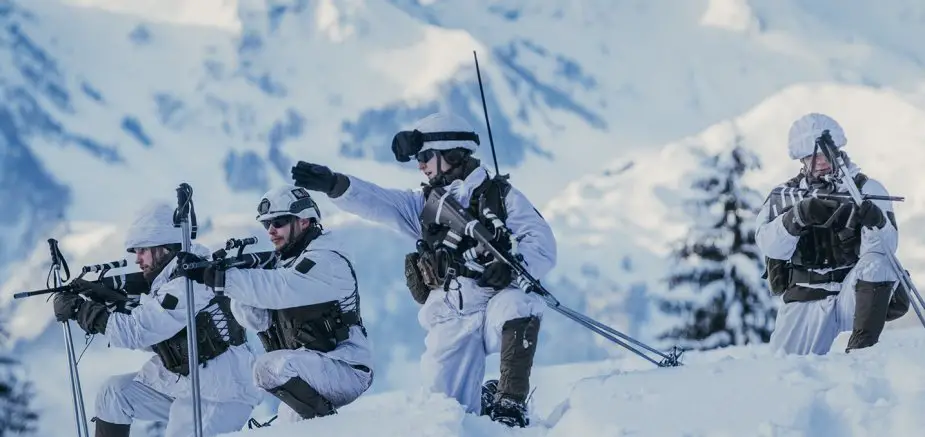Breaking news
New EDA research project to improve resilience of cold weather operations.
On April 23, European Defence Agency’s Steering Board green-lit the launch of a new research project aimed at studying ways and means of improving the operational outfit and equipment of Armed Forces operating in extreme cold and icy weather conditions. The project has a duration of three to four years.

Austrian mountain troop (Picture source: EDA)
Military missions and operations in cold climate are particularly challenging as they demand from the troops a great deal of physical, operational and mental resilience. Experience from exercises in extreme cold has shown that a considerable number of the soldiers suffer from cold weather injuries (e.g. frostbite, hypothermia, chilblains, immersion foot) and negative energy balance which can highly compromise their performances. An in-depth knowledge of the risk factors for developing cold-related injuries and their impact on the troops’ safety and effectiveness is thus critical to sustaining operations in the north.
Against this backdrop, EDA has just launched a new R&T project to study this problem in greater detail to ascertain the consequences and possible countermoves. Under the leadership of the Netherlands, three more countries are participating: France, Sweden and Norway (the latter is no formal EDA Member State but has concluded an Administrative Agreement with the Agency). The overall objective is to contribute to improving the European capability of operating in arctic/cold environments by developing tools to reduce the risk of soldiers developing cold-weather-related injuries and enhance warfighter performance.
It is the first R&T project in EDA to study Cold Weather Operations on a European level. It will be important to identify the standards and procedures are currently being applied in the various Member States. The project will, therefore, identify national variations in the regulations and threshold values for body temperature, safe working duration and respective garment requirements and develop an interpretation guide to translate the generic advice of the main existing standard in this field, ISO-11079, and its extension to national clothing & equipment items. It will also review and measure individual variation in thermal stress response and nutritional demands in cold environments. Finally, the intention is also to identify the added value of wearable sensor technologies for improved personalised advice.
The Cold Weather Operations project is one of several R&T activities under the CapTech CBRN and Human Factors.

























